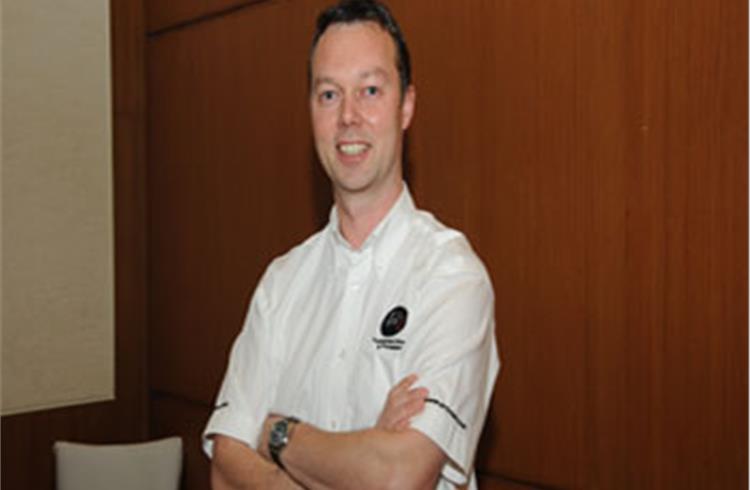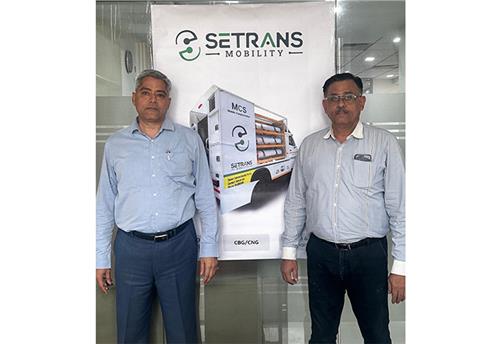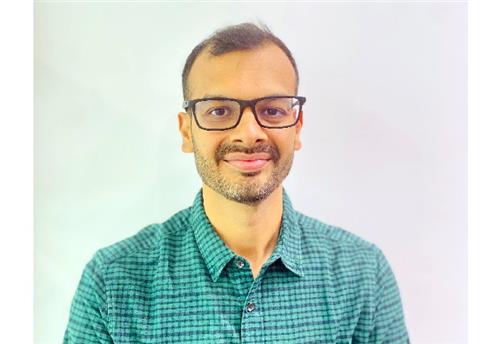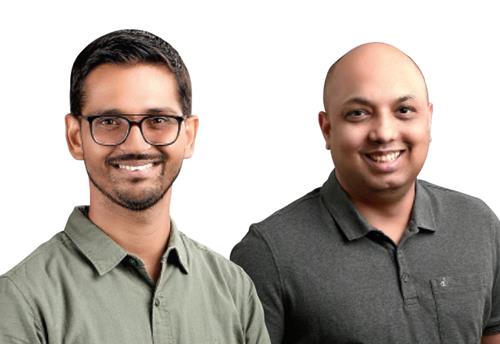February 15, 2011: Simon Poole
Director, Pro2. Talks about professional driving services and training
Normally, the only suppliers to OEMs we only talk about are suppliers of components or engineering services. Tell us about the automotive engineering and testing services Pro2 provides.
This is a service that we provide currently as subcontractor to Lotus Cars. We basically offer our services to vehicle manufacturers in the UK. And as part of that we’ve been asked to go out and train engineers at vehicle manufacturers overseas in high-performance driving techniques, so their engineers can actually learn how to drive cars at or near the limit, or even sometimes over the limit, of the car’s capabilities, so that they can better understand what happens when the car gets near the limit. But we also teach people how to improve the vehicle, feel what the car is actually doing, to be able to make minor changes and actually improve the way the vehicle handles — the vehicle dynamics side of it.
In India engineers who develop cars don’t typically drive the cars themselves. Is that significantly different in Europe?
Not every engineer in Europe drives the cars he develops. That’s why we therefore go out and we train engineers. From what I understand that’s certainly the case in India — that engineers don’t drive the vehicles but use drivers to give them feedback. It’s probably right to say that if you’re driving the vehicle you will feel what’s actually happening a lot easier than being able to tell someone what’s actually happening. Engineers have to be able to drive and understand what’s happening to the vehicle so they can make the car feel exactly how they want it to feel.
Right now it’s a kind of compromise, isn’t it?
Exactly. Effectively it’s a third party input, isn’t it? Because the driver is telling the engineer, and the driver may not be experienced enough at telling the engineer everything the engineer needs to know.
How did you get into this? What is your background, and the background of your company? You aren’t engineers, but you have a service for engineers…
Basically my background is motorsport and instructing. We started the company in 2007 when we won a contract with Lotus to supply instructors for their driver training programme. And then, out of just offering that one service, the business has grown and acquired a number of other facets. So we provide instructors for the driver training programmes for vehicle manufacturers, but where we differ from a lot of other companies, or how we differentiate ourselves, is in the quality of instructor and the quality of specialist training that we provide. We have four ex-F1 drivers and a Le Mans 24 Hour racewinner who work for us. We have people who race at a very high level, but we also have engineers who have worked developing lots of different types of vehicles. For example, one of them engineered one of the Subaru World Rally cars. So we bring people in according to the needs of the customer. And we specialise in having 80 of the best instructors in the world.
Is Lotus the only company whose engineers you’ve trained?
Lotus is the company we’ve worked the most for in the UK. We provide instructors for Ferrari and we’ve also just started working with Jaguar Land Rover. We are doing some test work with Jaguar and we are also providing some support to Land Rover for their driver training programme. But through Lotus we’ve been out to China and Korea and trained engineers out there.
What about big OEMs like Volkswagen?
We work for them as subcontractors, but mainly in the UK.
Do you see good prospects with the European transplant manufacturers in India?
I think India is a market with huge potential generally. It is obviously very progressive, it’s wanting to improve, and that’s something I hope Pro2 can help with. An engineer sitting in the passenger seat can’t actually feel how much steering feel there is, how much of a reaction there is when the driver turns the wheel.
Pro2 is 3½ years old. Have you found a way to quantify the benefit that you deliver from the driving training you give engineers?
I think it’s very difficult to quantify, but the fact that we keep getting asked to do it means that there is a requirement out there. Certainly it is much more of a European viewpoint to have engineers able to drive and develop cars, but that is obviously going to help Indian manufacturers if they want to break into the European market — to be able to understand how vehicles are assessed under European-type criteria. That’s something obviously we can do.
In India the discourse is mostly about the domestic market, low-cost cars… These things aren’t typically imperatives that you’d think an engineer would need to drive a car to develop.
Certainly one of the things there is a focus on – I don’t say there should necessarily be a focus on it, but it is something that manufacturers will be focusing more on – is the safety element as well. We can help engineers understand how the car performs, but they can also understand what it’s like if they make severe avoidance, or if during the monsoon season they need to go around a corner perhaps quicker than expected. Engineers need to feel what’s actually going to happen to the car at the limits of the car’s performance, to make it safer.
You’ve got engineers on your team — do you also evaluate cars and give the OEMs feedback?
Yes. We provide a whole range of such development-type services. We can test cars — for example, we’ve done durability testing, doing 100,000km in a vehicle, seeing if anything breaks, and giving an assessment at the end of that. We can provide what’s called subjective evaluation, an individual assessment of the car and how it handles, and objective evaluation, in which we rate the vehicle against a set of predetermined criteria, a ‘pass’ or ‘fail’ assessment. And we can support much smaller programmes. For example, we’ve been asked if we can test the towing capabilities of a vehicle — a much smaller project within a bigger project. Those are the sorts of things we can be asked to do. We also provide premium delivery services with skilled heavy-vehicle
Is there absolutely a need to have a person physically test the vehicle? Or do you see any drawback to the “abstraction”, if you will, of testing by reliance on computer simulation?
There’s been a lot of talk in the automotive world, probably worldwide, certainly in Europe, about the move to the theoretical CAE, also for durability testing — sticking a car on a rig and having simulated mileage put on. But that can’t replicate different driving styles or actual physical differences in how someone drives. You only need to look at the number of recalls for bits that aren’t working as they should be working to know that actually it doesn’t work so well. At the end of the day it isn’t a physical car — it’s relying on inputs, what someone types into a computer.
Which of your services do you see the most need for in India? Do you have a sense of which would be more immediately required?
I think the engineer training is a key thing. We visited the SIAT Expo in Pune last month to advertise those services for vehicle manufacturers. As part of those, we can offer training for customers as well — so, for example, if Mercedes wanted to run a driver training programme here for any customers that bought a Mercedes – very specific to the Indian market, things like defensive driving, – we could do that on their behalf. But our focus at SIAT was on engineer training. We have hopefully picked up some business training engineers for one of the major OEMs and that can only help us to establish our brand in India.Do you see the scope for providing your expertise in subjective assessment…I think so, because obviously we can give a much more European perspective on vehicles. If the car has been developed as a worldwide car rather than specifically for the Indian market, we can give some objective feedback about how the car might perform against its peers in the European market.
Is there any particular point of a development project at which you come in?
They could pull us in at any point, obviously, for engineer training. That’s outside of any particular developmental need. But depending on how far down the project it’s gone, obviously the needs change. We can help at any stage.
In your portfolio of offerings, is driver training for engineers the largest?
The two biggest are training engineers, and providing support for manufacturer driver training programmes. Providing instructors for training both, engineers and customers.
Wouldn’t it make sense for high-end brands like Porsche and Bentley to throw in an optionfor an Indian customer to learn how to really use his car for the purpose for which it was designed?
Definitely, especially if they have no experience of driving cars of that same sort of performance level. We would do it off the public roads, because it’s easier to train people where there are no other cars. We could train people at racetracks, at proving grounds, airfields, anything away from public roads.
Motorsport is catching on in India — we don’t have the infrastructure you do in the UK, but there is a lot of interest, and people are willing to put money into it. What are the kinds of services you have there?
With the experience of the instructors we’ve got, we can provide from very basic car handling, for someone who’s driving a car on a track for the first time, right up to training someone how to win races. We have, as I said, ex-F1 drivers. We use Martin Donnelly, who was a Lotus F1 driver in the 1990s. He’s a very good friend of mine. The other guys actually raced in F1 in the 1970s — Mike Wilds and Dickie Attwood, who won the Le Mans in 1970 driving a Porsche 917.
How did this company come about?
I was working with Lotus Cars as an instructor along with about five or six others. In 2007 we tendered for the business to supply Lotus with instructors and won that, and that was when we had to start the company. And then, because I had been doing race tuition for Ferrari as a freelance instructor, I approached Ferrari to see whether they would be interested in our services as Pro2 and we then started supplying Ferrari.We’ve trained Ferrari customers in the whole of Europe. We went to Spa in Belgium, Barcelona in Spain, Paul Ricard in the south of France, literally all over Europe. Lovely, fantastic circuits. That’s still running. And that basically increased our instructor base to the 80 that we currently have. These are from a wide range of backgrounds, predominantly motorsport, but we also have ex-UK police instructors.
Those wouldn’t be the people who train engineers…
Exactly. Their skills are very much more road-based, defensive driving, security driving, being aware of your surroundings, awareness, vision, pre-empting a problem, understanding what you should do if a situation is going to happen — like, for example, when someone may be cutting in front of you, that sort of thing.
How big is your business in this area? Who are your typical customers for this in the UK?
As a percentage, very small. We are working with areas of the UK government. That is a small part of the business, but still, looked at broadly, we’ve got experience in a lot of different sectors.
Do you see any scope for working with the security services market in India?
It’s not something that I’ve looked at, because it’s really such a small part of our business in the UK. Certainly something we could look at, depending on how our business develops in India.
Are you aware of government regulations here that might restrict or prohibit some of your service offerings?
Not that I know of. From what I’ve experienced the Indian government is very open to knowledge transfer that will have a positive effect on the local market.
Will you need to increase your instructor base beyond 80 if you engage in India?
Yes, we would look to use local talent where possible. In fact one of my tasks in the near future is to put in place the framework to do this, to have ‘train the trainer’ programmes.
RELATED ARTICLES
Setrans Mobility Booster Charging top-up 25% EV range in 15 minutes
Two enterprising tech-savvy entrepreneurs Rana Roshan Singh and Vivek Ummat of Noida, Uttar Pradesh-based start-up Setra...
'Our products are proudly 100% designed and made in India'
Creatara Mobility, a New Delhi based electric two-wheeler startup, claims to have tackled various challenges in making i...
'EVs have been around for a much smaller time than ICE, so best practices are still evolving'
EV OEMs and start-ups are under pressure to reduce production costs and bring them close to ICE counterparts. Vaibhav Ku...





 By Autocar Pro News Desk
By Autocar Pro News Desk
 16 Feb 2011
16 Feb 2011
 2501 Views
2501 Views









